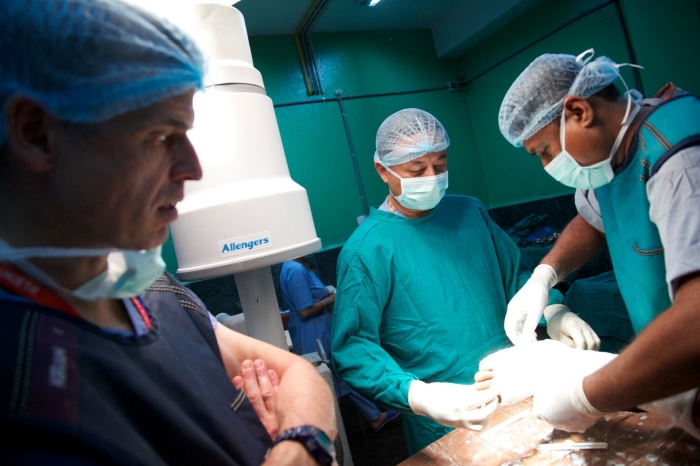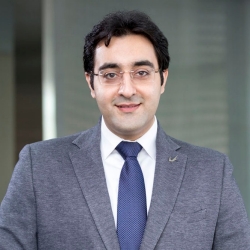Amir Hooshiar, 2018 Concordia Public Scholar and Director of the Surgical Robotics Centre in the Department of Surgery at McGill University, is collaborating with Tannaz Torkaman, Majid Roshanfar, and Javad Dargahi from Concordia’s Department of Mechanical, Industrial, and Aerospace Engineering. The team developed an innovative highly accurate force-torque sensor for flexible robots used in surgery. Their innovative research makes the robots smarter and safer to use in surgery.
Soft robots are robots that are made from flexible materials, such as rubber or silicone. These robots are great candidates to be used inside human body during surgery because of their intrinsic compliance, making them less aggressive when interacting with delicate organs.
However, a soft robot’s flexible nature can make it challenging to use. Its high flexibility makes it cumbersome and difficult for force sensors to be properly installed.
In a new paper published in IEEE Sensors Journal, this McGill-Concordia team outlines the development of a sensor that can measure forces and torques in six degrees of freedom, enabling greater precision and control in soft surgical robot movements. The sensor uses machine learning algorithms to calibrate itself, making it more accurate and reliable over time. This new sensor could help make robotic assisted minimally invasive surgery more common and easy to use for surgeons.
Read “Embedded Six-DoF Force–Torque Sensor for Soft Robots With Learning-Based Calibration” in IEEE Sensors Journal.



